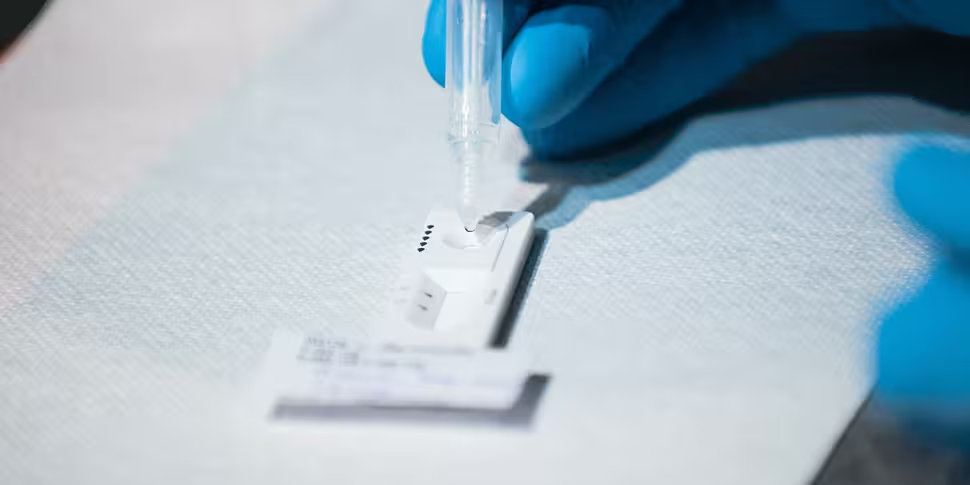Availability of rapid coronavirus tests will make a huge difference to everyday life, according to the World Health Organisation.
The WHO's Special Envoy on COVID-19 says more and more reliable antigen tests will become available in the coming weeks.
Here in Ireland, the Government has confirmed such tests will be used to test the likes of hauliers entering the country.
David Nabarro told The Pat Kenny Show the tests can benefit the economy, the health service and mass gatherings.
He said: “Being able to test large numbers of people to see whether or not they’re harbouring the virus is very, very valuable.
“Recently, the antigen test - using a technique called lateral flow - has become increasingly popular.
"We’ve seen it used in many different locations, particularly for example in trying to keep aircraft free of people who’ve got COVID or looking after major events - the White House used antigen tests quite recently.”
Dr Nabarro said the tests are a really good tool, but cautioned they're “slightly rough and ready”.
He explained: “We have to be careful: Not everybody who is negative on the antigen test is actually negative when it comes to knowing whether they got the virus.
"It can be used as a rough guide, but it is not the definitive way of working.”
However, he stressed more reliable tests are becoming available soon.
He observed: “That’s going to make a huge difference to everyday life - I’m very much looking forward to them being available in Ireland, for example.
“That’s key to keeping factories open, it’s key to making sure the health service is a safe place, and it’s key if we’re going to be able to get back to mass gatherings again - particularly for sporting events.
“It will come, and it will make a big difference if we get slightly more reliable tests - [it’s] not far away.”
Vaccines
In terms of vaccines, Dr Nabarro said there’s ‘lots of promising’ vaccines on the horizon, but regulations mean there’s going to be inevitable delays in making them available.
He said giving any vaccine emergency authorisation is not something regulators do lightly.
He said: “There’s a need to get the vaccines administered as quickly as possible, but for me the use of the vaccines right now is to save lives.
“I don’t think personally we’re yet at a point where it’s reasonable to contemplate using vaccines to get rid of the pandemic.
"It’s going to take quite a lot of time before whole populations are immunised.”
He said for now people shouldn’t be clammering for whole population immunisation, as richer countries could ‘suck up’ all available supplies while people in poorer countries suffer.
He said he and he and the WHO are instead in favour of a global plan to use the vaccines that are available now primarily for those most at risk, "wherever they might live around the world" - saying vaccine equity is off major importance.









